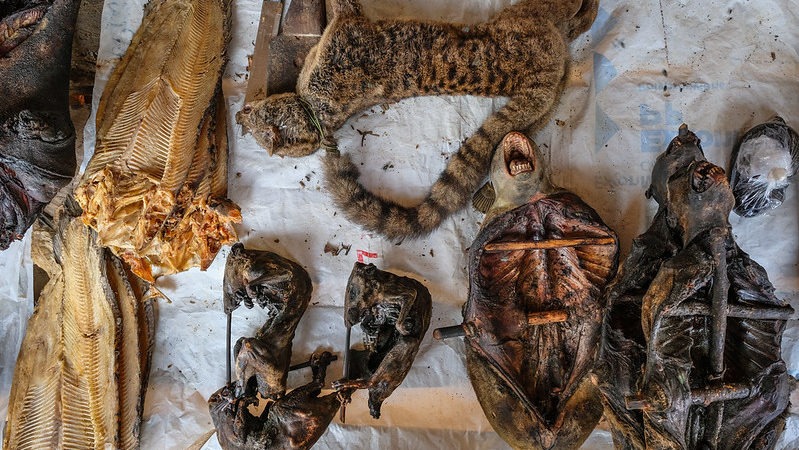Item Link: Access the Resource
File: Download
Publication Info: doi: 10.1007/s10640-020-00484-3
Date of Publication: August 4
Year of Publication: 2020
Publication City: Bethesda, MD
Publisher: National Library of Medicine
Author(s): Romain Espinosa, Damian Tago, Nicolas Treich
Journal: Environ Resour Econ (Dordr).
Volume: 76(4)
Pages: 1019-1044
Abstract
Most infectious diseases in humans originate from animals. In this paper, we explore the role of animal farming and meat consumption in the emergence and amplification of infectious diseases.
First, we discuss how meat production increases epidemic risks, either directly through increased contact with wild and farmed animals or indirectly through its impact on the environment (e.g., biodiversity loss, water use, climate change). Traditional food systems such as bushmeat and backyard farming increase the risks of disease transmission from wild animals, while intensive farming amplifies the impact of the disease due to the high density, genetic proximity, increased immunodeficiency, and live transport of farmed animals.
Second, we describe the various direct and indirect costs of animal-based infectious diseases, and in particular, how these diseases can negatively impact the economy and the environment. Last, we discuss policies to reduce the social costs of infectious diseases. While existing regulatory frameworks such as the “One Health” approach focus on increasing farms’ biosecurity and emergency preparedness, we emphasize the need to better align stakeholders’ incentives and reduce meat consumption.
We discuss in particular the implementation of a “zoonotic” Pigouvian tax, and innovations such as insect-based food or cultured meat.
Keywords: Infectious diseases, Meat production, Meat consumption, Biodiversity, Prevention, Intensive farming, Regulation, Taxation
Read the full paper here or download it from the link above.
The views and opinions expressed through the MAHB Website are those of the contributing authors and do not necessarily reflect an official position of the MAHB. The MAHB aims to share a range of perspectives and welcomes the discussions that they prompt.
